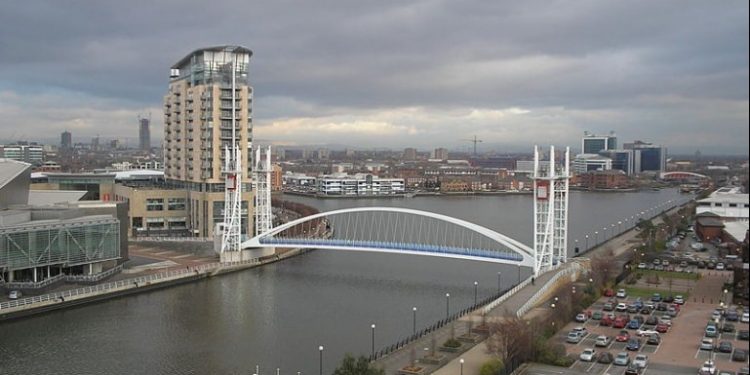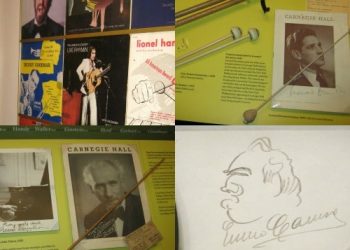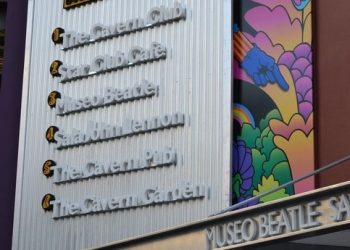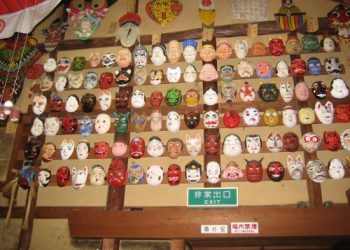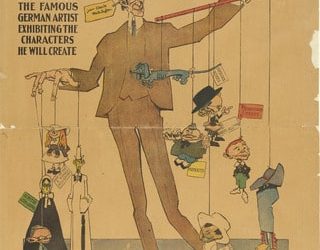In my attempt to read the run-on ramblings of Morrissey’s memoirs (who is made of “Irish Blood, English Heart”) I thought I’d keep it interesting with my obsessive curatorial tendencies (and I once lived in Manchester, which means my heart also bleeds very damp industrial tears) by noting every mention* of Manchester (not counting local areas or neighboring towns) in Morrissey’s Autobiography:
“Until then we live in forgotten Victorian knife-plunging Manchester, where everything lies wherever it was left over one hundred years ago.” (pg. 3)
“Manchester’s Victorian generation having coughed to their deaths after lifetimes of struggle…” (4)
“Birds abstain from song in post-war industrial Manchester…” (4)
“Manchester is the old fire wheezing its last…” (4)
“My parents are both striking lookers, and it is they who sail to Manchester…” (8)
“We rarely see my father’s side…they too are splattered about Manchester…” (8)
“The Irish banter is lyrical against the Manchester blank astonishment.” (8)
“This is the Manchester school system of the 1960s, where sadness is habit-forming…” (11)
“…and the same everything in an urchinular and picareque Manchester way.” (12)
“From left side to right side, Queen’s Square’s bookends are the Bretts and the Blows, two overlarge and knowing Manchester families.” (13-14)
“Not in Manchester Play Streets, where children can only encumber…Not in Manchester by-streets, which are exactly what they sound like.” (18)
“Turn and look at me – in affectionate childhood distress, the last in the asylum, by a frosty Manchester fire.” (19)
“…all action and adventure with moments of meanings happen in a place called elsewhere, and never in the sad soil of Manchester.” (21)
“Mother is Mother, and never Mum (or the ghastly Manchester ‘Mam’)…” (22)
“Leaf Street Public Baths…in ice-cold waters where shadowy old Manchester once allowed its street-traders a sanitary dip in a slipper bath…” (24)
“Now lifted out of humiliation by the Manchester Education Committee…” (24)
“…Manchester was rife with what were known as tramps.” (25)
“A swarm of misery grips mid-60s Manchester as Hindley and Brady raise their faces to the camera and become known to us all…” (26)
“…sealing Manchester as a place of Dickensian drear.” (27)
“…the social landscape of Manchester warps forever with further reason to cry.” (27)
“Mike Summerbee’s central Manchester boutique was destiny fulfilled…” (28)
“This is still the old and weathered Manchester where people carry deep bowls to ice-cream vans…” (28)
“Ernie sank into the army for identity, but lost his, and returned home to Manchester, unhappily.” (32)
“…he is not too deep to be rescued and raised to his parents’ plot in Manchester…” (33)
“The oldest of the Dwyer sisters is Dorothy, and she works in central Manchester and has a life.” (35)
“All Manchester boys are mad…” (35)
“…but as each year passes my sister and I are less willing to leave Manchester.” (37)
“We had waved goodbye to Mary at Manchester airport, a US emigrée in her nineteenth year, and to never again be a Manchester lass.” (39)
“The rat is large and Manchester-tough…” (39)
“Top of the Pops began its life in Manchester…” (42)
“No multinational menus were yet on the Manchester horizon…” (47)
“I arrive in the always wet and windy north Manchester…” (85)
“The school-doom factories of north Manchester are as pitiful as those of St Mary’s south…” (85)
“In mid-70s Manchester there must be obsessive love of vagina, otherwise your life dooms itself forever.” (86)
“All males are adversaries in muggy Manchester…” (97)
“The Manchester Education Committee themselves were their own critical guide…” (100)
“The Manchester kids of my circumstances learned a sense of humiliation as a priority before they learned anything else…” (100)
“We meet every weekend in central Manchester (or ‘in town’, as locals will say) and we walk for hours…” (101)
“Jon, who is…mildly oblivious to the cage of Manchester.” (102)
“For almost two years Jon and I will be occupied with each backland enclave of Victorian Manchester (especially since Manchester remains almost exclusively Victorian)” (102)
“The scars of Hitler remain evident in 1970s Manchester where businesses somehow continued in rooms of drear on semi-derelict streets.” (102)
“Queen Victoria had visited Manchester in the 1840s and had remarked upon its destitution as despair previously unseen, and she also remarked upon the sickly look in the faces of Manchester folk…” (102-103)
“Manchester repaid her [Queen Victoria] unflattering comments with a fat, black statue in Piccadilly Gardens…What had she ever done for Manchester but criticize it?” (103)
“1840 was a time when Manchester’s poverty and violence outstripped even London’s hard-as-nails East End inferno.” (103)
“I had befriended Hazel Bowden and Kath Moores, who are part of an east Manchester sect steeped in all the right noises.” (104-105)
“It is an unfortunate but recurring Manchester wrangle wherein the female starts trouble but is then protected by her femininity…” (105)
“…as I spend the night hanging around Euston Station awaiting the first train back to Manchester, I am lost in Bowie’s loss.” (113)
“At last I am face to face with Marc Bolan…in the lobby of the Midland Hotel in Manchester.” (114)
“Back on Manchester’s inscrutable streets…” (115)
“Manchester gigs throw up the same dramatis personae…” (115)
“…Manchester is a barbaric place where only headless savages can survive.” (116)
“…I stayed on Staten Island with Mary, who had left Manchester in 1969.” (117)
“…and I cry myself back to intolerant Manchester.” (119)
“Walking through 6:30 traffic – with blood on my face, and with no intervention from passers-by – my life in Manchester is defined.” (120)
“Once at his house, I find that my wet shoes (for this is Manchester) have dragged acres of grass into the living room…” (129-130)
“I meet her twice in unlit corners of Manchester danceterias…” (131)
“‘Is this a rough part of Manchester, then?’ he asks, looking away.” (138)
“Manchester’s most pickled poor live in these surrounds…” (138)
“…the mad poor of Manchester’s armpit.” (138)
“In the exploding Manchester scene, she [Linder Sterling] was the only female…” (139)
“The music scene of Manchester is a dark thread of maleness.” (139)
“…Billy [Duffy] enlists the rhythm section for a wrangled spot at Manchester University…” (140)
“Manchester’s imagination teems with musical groups crawling out of the literal and the metaphorical darkness.” (142)
“…Johnny [Marr] had enough spark and determination to push his way in amongst Manchester’s headhunters…” (146)
“A major stroke of luck is the enormous rehearsal room in central Manchester…” (148)
“…Manchester’s weary intelligentsia edged out to form a visual line of those-in-the-know.” (150)
“But he was a poor, gawky boy from Manchester’s forgotten side streets…” (167)
“As we separate in Manchester, fatality shrieks.” (177)
“A Melody Maker interview is written by a failed Manchester musician under an assumed name…” (188)
“The summer of 1986 brought Anthony Wilson’s Festival of the Tenth Summer, which took place at Manchester’s G-Mex with a roundabout intent to salute Anthony Wilson as Manchester’s occupying power.” (189)
“’This isn’t about Factory, this isn’t about Tony Wilson or Steven Patrick Morrissey; it’s about Manchester, and Manchester only.’“ (190)
“Suddenly Wilson’s divine right to be Mr Manchester is scuppered…” (191)
“Television still emits only the King’s English, which Manchester naturally dismembers by dropping any G that might be at the end of a word.” (199)
“Leaving Manchester always meant the train to London…” (199)
“The ungovernable life is here in Manchester, all dark and unloving…” (199)
“Manchester’s architectural heritage is demolition.” (199)
“The righteous heckles of the Manchester Evening News are still, in 1987, unable to offer a line of support to the Smiths…” (210)
“The Collins English Dictionary furnishes its 1987 edition with Smiths: a Manchester pop group, an entry I read and reread until my eyes weaken.” (220-221)
“Ever helpful, the Manchester Evening News yelp a two-page spread entitled MORRISSEY WAS HELL TO WORK WITH SAYS JOHNNY MARR.” (223-224)
“These moors have another life, and that life is very much apart from the one you may have just left in Manchester, Bradford or Huddersfield.” (229)
“An old Manchester rear gunner, Paul Morley, reviews the album’s opening single (We hate it when our friends become successful)…” (261)
“…Johnny Marr crying off for being held accountable for his own actions, and all Mancunian camaraderie shafted.” (319)
“…the three tough Manchester lads sat like nervous girls…” (335)
“The Lowry is the sharpest of Manchester’s hotels…” (385)
“…with the dimmest view held by [Victoria] Wood for her own Manchester self…Born in the Prestwich area of Manchester, she did not betray herself with self-pity…” (389)
“There I am, too, in the record shops in the center of town, surrounded by Iceland’s very own vocal dreamers – so far from Manchester.” (395)
“December 22nd and 23rd are Manchester nights…where I am greeted as the foot soldier that saved the Empire.” (399)
“Oh Manchester, so much you can’t answer for.” (402)
“Peter [Noone] is from Manchester and attended Stretford Road School near my iron pile slammer, St Wilfrid’s.” (411-412)
“’You must call your next album Steven,’ says Manchester luvvie Tony Wilson, and I stare back at him – wondering if he had ever actually had a good idea in his life.” (412)
*Let me know if I missed anything, and let’s cross our fingers that the city of Manchester uses some of these quotes in their next tourism marketing campaign as well as actors Tom Hanks (who is randomly mentioned on page 242) and John Lithgow (mentioned on page 364) write about Morrissey in their own memoirs.
